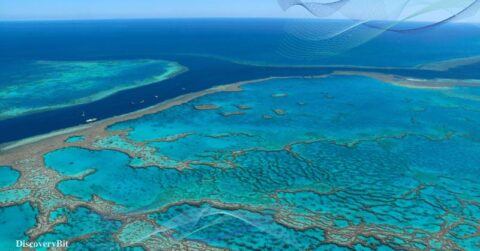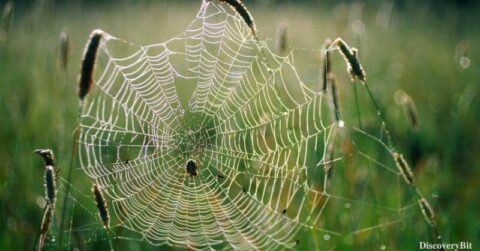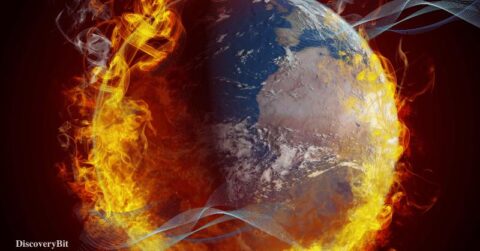In the grand tapestry of life, fresh water emerges as a vital thread, sustaining the intricate balance that underpins our existence. Yet, as inhabitants of this planet, we often find ourselves taking this precious resource for granted. Our insatiable demand for water, woven into various aspects of daily life, from drinking and bathing to cooking and powering our homes, has led to a situation where the wellspring of freshwater is under threat.
Consider the vast spectrum of activities that rely on water – farming, feeding livestock, swimming pools, spas, washing cars, and more. Each droplet plays a role in the intricate dance of life, supporting agriculture, industry, power generation, and domestic needs. However, the prevailing scenario reveals a stark truth: freshwater is not an infinite bounty.
Watershed conservation emerges as a beacon of hope in this looming crisis. It beckons us to rethink our water habits, to tread lightly on the Earth’s intricate hydrological canvas. Picture a world where freshwater is no longer a given, where its scarcity renders our daily routines obsolete. The urgency of the moment requires us to embrace water and conservation as intertwined principles that safeguard our future.
This post, a call to action, seeks to illuminate the reasons behind the imperative to conserve water. It transcends rhetoric, delving into tangible examples that illustrate the consequences of our collective negligence. Saving water becomes not just a responsibility but a lifeline, a pledge to ensure the continuity of life on Earth. Join the movement, for in the delicate balance of nature, the choice to conserve water echoes the heartbeat of our shared existence.
The Bounty of Earth’s Freshwater Reserves
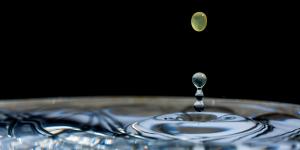 Delving into the vast expanse of Earth, where water dominates the scenery, one might wonder why the urgent call to conserve freshwater. After all, with 70% of the planet draped in water, why worry? The answer lies in the intricacies of nature’s distribution. Astonishingly, the vast majority of Earth’s water, residing in oceans, is not fit for consumption due to its saline composition.
Delving into the vast expanse of Earth, where water dominates the scenery, one might wonder why the urgent call to conserve freshwater. After all, with 70% of the planet draped in water, why worry? The answer lies in the intricacies of nature’s distribution. Astonishingly, the vast majority of Earth’s water, residing in oceans, is not fit for consumption due to its saline composition.
Freshwater, the lifeblood of sustenance, constitutes a mere 3% of Earth’s water. To compound matters, a significant 2% of this vital resource is entangled in glaciers and ice caps, rendering it inaccessible for immediate use. What remains for our daily needs is a meager 1% of freshwater, sourced from surface and underground reservoirs. Even within this fraction, the purity of water from rivers, lakes, and streams is often compromised by contamination.
The perplexing question arises: why hasn’t this 1% of freshwater depleted since the dawn of humanity? The answer lies in the renewability of this precious resource. Freshwater follows a cyclical journey through the water cycle, returning to Earth albeit with variations in quality, quantity, and location. However, this natural replenishment does not absolve us of responsibility. The need for robust conservation practices becomes paramount to ensure the sustained availability of freshwater for generations to come.
In essence, while the Earth may be predominantly water-covered, the quest for viable, drinkable freshwater is akin to finding a needle in a haystack. The urgency to conserve water emerges not just as a choice but as a fundamental necessity to secure our shared future. Join the movement, embrace watershed conservation, and become a steward of the world’s most precious elixir.
Freshwater: A Liquid Gold in Peril
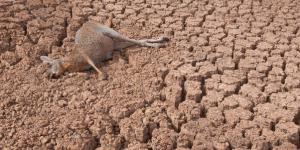 Embarking on a journey through the labyrinth of freshwater statistics, the revelation dawns: freshwater, a replenishable yet finite natural marvel, is the cornerstone of our existence, particularly in regions grappling with water scarcity and persistent droughts.
Embarking on a journey through the labyrinth of freshwater statistics, the revelation dawns: freshwater, a replenishable yet finite natural marvel, is the cornerstone of our existence, particularly in regions grappling with water scarcity and persistent droughts.
As the global population burgeons exponentially, the demand for freshwater intensifies, exacerbated by escalating living standards even in developing nations. The United States, a microcosm of this dilemma, witnesses a staggering daily water demand of 400 billion gallons, significantly surpassing the initial requirement of 300 million gallons.
The impending crisis looms larger when we consider specific regions grappling with the impact of population growth, industrialization, and climate change on freshwater scarcity:
A) Cape Town, South Africa: This metropolis grapples with a current water shortage, serving as a poignant example of how urban centers face the brunt of freshwater depletion.
B) Colorado River Basin: A delicate dance between heavy freshwater use and climate change jeopardizes the natural flow and quality of water in this vital basin.
C) Moscow, Russia: The rapid industrial growth in Moscow contributes to freshwater pollution, a perilous situation as 70% of the city’s freshwater supply comes from surface water.
D) Aral Sea, Kazakhstan, and Uzbekistan: Water diversion for agricultural purposes has diminished the Aral Sea by 60%, leading to increased salinity, devastating the fishing industry.
E) Lake Chad, West Africa: The dependence on Lake Chad’s freshwater for agriculture by Chad, Niger, Nigeria, and Cameroon has shrunk the lake to one-twentieth its former size, portending a severe freshwater crisis.
F) Chennai, India: Facing severe water scarcity, Chennai exemplifies the challenges of rapid urbanization and mismanagement of water resources in developing regions.
G) California, USA: With persistent droughts and increasing demand, California showcases the intricate water struggles faced by one of the world’s largest economies.
H) Beijing, China: Rapid population growth and industrialization have strained freshwater resources in Beijing, highlighting the impact of urban expansion on water availability.
I) Amazon Rainforest: Deforestation and changing climate patterns threaten the intricate water cycle of the Amazon, impacting the world’s largest rainforest and its biodiversity.
J) Great Barrier Reef, Australia: Rising sea temperatures and pollution affect the delicate balance of freshwater and saltwater in the reef, emphasizing the interconnectedness of marine ecosystems with freshwater sources.
These alarming instances underscore the urgent need for watershed conservation and water and conservation initiatives. Without concerted efforts to conserve water, these vital reservoirs of life may soon run dry, leaving a parched legacy for generations to come. It’s time to act, to safeguard the irreplaceable elixir that sustains us all – freshwater.
Safeguarding Our Freshwater Lifelines
As we stand at the precipice of a global freshwater crisis, with forecasts indicating a 40% deficit in supply and 50% of the population facing water stress by 2030, the clarion call for freshwater conservation reverberates louder than ever. This impending catastrophe stems from human actions, unchecked population growth, and the relentless impact of climate change.
Freshwater conservation, a beacon of hope amid the impending scarcity, encompasses strategic initiatives crucial for our survival:
1) Wise Utilization: It involves judiciously managing nature’s limited freshwater supply in our daily lives, stretching its utility for both humanity and the ecosystem.
2) Pollution Prevention: Freshwater conservation demands a cease to activities that pollute these life-sustaining waters. This entails eradicating water-polluting substances/processes and elevating water management and quality to unprecedented levels.
The urgency is palpable; the need for watershed conservation and water and conservation initiatives is non-negotiable. It’s time to save water, conserve water, and secure our liquid lifelines for a flourishing future.
Top 10 Benefits of Freshwater Conservation
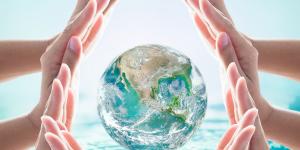 Embarking on the journey of freshwater conservation unlocks a cascade of benefits that transcend individual actions to shape the destiny of our planet. Let’s delve into the top 10 enthralling advantages, where every drop conserved becomes a catalyst for a sustainable future.
Embarking on the journey of freshwater conservation unlocks a cascade of benefits that transcend individual actions to shape the destiny of our planet. Let’s delve into the top 10 enthralling advantages, where every drop conserved becomes a catalyst for a sustainable future.
1) Economic Oasis: Freshwater conservation creates a flourishing economic oasis, with studies revealing that every dollar invested in watershed conservation yields a remarkable return of up to $27 in economic benefits.
2) Biodiversity Bonanza: Preserving freshwater habitats nurtures biodiversity, supporting a myriad of aquatic species and safeguarding delicate wildlife and ecosystems. A win for nature’s intricate tapestry.
3) Climate Resilience: Watershed conservation fortifies against the wrath of climate change, acting as a resilient shield against floods, droughts, and other extreme weather events.
4) Drought Defiance: Adopting water and conservation practices ensures resilience during droughts, with countries like Australia demonstrating how proactive water management can mitigate the impact of water scarcity.
5) Clean Water Purity: Conservation safeguards the purity of freshwater sources, reducing the need for costly water treatment processes and ensuring a clean, potable supply.
6) Agricultural Abundance: Implementing water-saving techniques in agriculture boosts yields, fostering food security and sustainable farming practices.
7) Community Empowerment: Freshwater conservation empowers communities by providing a stable water supply, enhancing health, and supporting economic activities.
8) Tourism Thrive: Pristine water bodies, preserved through conservation efforts, become magnets for ecotourism, contributing to local economies and global appreciation for nature’s wonders.
9) Energy Efficiency: Water and conservation practices play a pivotal role in energy efficiency, reducing the energy-intensive processes associated with water treatment and distribution.
10) Timeless Legacy: By conserving water today, we bequeath a timeless legacy to future generations, ensuring the perpetuity of life-sustaining liquid gold.
The Top 20 Innovative Methods of Freshwater Conservation
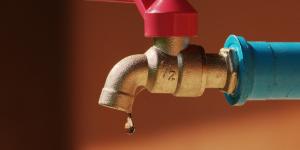 Embarking on a quest to safeguard our liquid lifelines, discover the top 20 innovative methods to conserve water, transforming drops into elixirs for a sustainable tomorrow.
Embarking on a quest to safeguard our liquid lifelines, discover the top 20 innovative methods to conserve water, transforming drops into elixirs for a sustainable tomorrow.
1) Rainwater Harvesting Extravaganza: Welcome the rain as a celestial gift. Harvest rainwater with modern cisterns, saving up to 600 gallons of water from a single inch of rainfall.
2) Eco-Landscape Design Ballet: Choreograph your landscape with native, drought-resistant plants, reducing water needs and turning your surroundings into a thriving oasis.
3) Leak Reparation Sorcery: Confront leaks like a water wizard, as fixing them promptly can save up to 10% on water bills and prevent the loss of over 1 trillion gallons annually in the U.S. alone.
4) Mulching Magic: Blanket your soil with mulch, a magical cloak that reduces evaporation, suppresses weeds, and retains soil moisture.
5) Culinary Alchemy: Transform your kitchen into a sanctuary of conservation. Choose water-efficient cooking methods, saving precious drops while preparing culinary delights.
6) Laundry Conundrum Solution: Enter the laundry realm with high-efficiency machines that perform the alchemy of cleanliness, using less water and energy.
7) Shower Time Warp: Step into a water-saving portal with shorter showers. A four-minute shower can save up to 1,750 gallons of water per person annually.
8) Toilet Revolution: Install water-saving toilets, propelling us into a future where each flush preserves water resources and reduces the strain on our watersheds.
9) Dishwashing Charm: Enchant your kitchen with water-efficient dishwashers, making every cycle a conservation spectacle.
10) Greywater Transformation: Conjure a second life for greywater – water from baths, sinks, and laundry – by utilizing it for irrigation, minimizing waste.
11) Aquatic Appliance Symphony: Equip your abode with water-efficient appliances, conducting a symphony of conservation in every home.
12) Landscape Aquascaping Mastery: Design an aquatic realm with mindfulness, creating water features that elevate aesthetics while minimizing water consumption.
13) Rain Garden Ballet: Choreograph the dance of rain gardens, captivating landscapes that absorb and filter rainwater, contributing to watershed conservation.
14) Faucet Aeration Ballet: Transform faucets into graceful water streams by installing aerators, reducing water consumption without compromising utility.
15) Xeriscape Odyssey: Embark on an odyssey of water-conscious landscaping with xeriscaping, a design philosophy that thrives on minimal water use.
16) Evaporation Shield Enchantment: Blanket pools and water features to shield them from the sun’s heat, reducing evaporation and preserving water.
17) Community Elevation: Rally your community for water and conservation initiatives, elevating collective efforts to secure a sustainable water future.
18) Educational Elixir Spreading: Share the elixir of water conservation through education, creating awareness to empower others in the quest for sustainable practices.
19) Industrial Alchemy: Advocate for water-efficient practices in industries, transforming commercial landscapes with responsible water use.
20) Champion Policies: Support and champion policies that prioritize watershed conservation and water-saving initiatives, becoming a steward of legislative magic.
As you embrace these water-saving marvels, remember that each act contributes to the harmonious symphony of freshwater conservation. Let us orchestrate a future where water flows abundantly, sustaining life’s aquatic dance for generations to come.
In the grand tapestry of existence, freshwater conservation emerges as the pivotal thread weaving life’s narrative. As the world’s population burgeons, and standards of living ascend, the demand for freshwater intensifies. Coupled with the relentless dance of climate change, the urgency to conserve water is undeniable. Every drop saved becomes a testament to our commitment to a sustainable legacy. From rainwater harvesting to the enchantment of xeriscaping, we hold the keys to safeguarding the elixir of life. Together, let us be stewards of freshwater, ensuring its perpetual flow for generations to come. In this liquid symphony, we find the harmony of existence.
Tags: conserve water fresh water Freshwater Natural resource Surfacewater Water conservation

